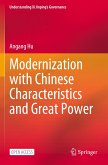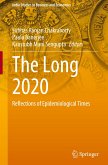Standardization Strategies in China and India
Industrial Policy and Geopolitics and Implications for Europe
Herausgegeben:Freimuth, Joachim; Kaiser, Siglinde; Schädler, Monika
Standardization Strategies in China and India
Industrial Policy and Geopolitics and Implications for Europe
Herausgegeben:Freimuth, Joachim; Kaiser, Siglinde; Schädler, Monika
- Gebundenes Buch
- Merkliste
- Auf die Merkliste
- Bewerten Bewerten
- Teilen
- Produkt teilen
- Produkterinnerung
- Produkterinnerung
In today's digital era, the significance of standards in modernization and innovation cannot be overstated. Often overlooked as purely technical aspects, they today reveal their profound economic and political impact. Focusing on India and China, this book sheds light onto the standardization approaches of these two dynamic nations.
With insights from both academic and practical perspectives, this book shows how China's centralized planning and structured institutions contrast with India's emerging hybrid model, which reflects its rich diversity. Both countries possess untapped…mehr
Andere Kunden interessierten sich auch für
![Investing in a Changing Climate Investing in a Changing Climate]() Ludovic SubranInvesting in a Changing Climate47,99 €
Ludovic SubranInvesting in a Changing Climate47,99 €![The Road Towards Common Prosperity The Road Towards Common Prosperity]() Qunhui HuangThe Road Towards Common Prosperity100,99 €
Qunhui HuangThe Road Towards Common Prosperity100,99 €![Modernization with Chinese Characteristics and Great Power Modernization with Chinese Characteristics and Great Power]() Angang HuModernization with Chinese Characteristics and Great Power31,99 €
Angang HuModernization with Chinese Characteristics and Great Power31,99 €![The Road Towards Common Prosperity The Road Towards Common Prosperity]() Qunhui HuangThe Road Towards Common Prosperity100,99 €
Qunhui HuangThe Road Towards Common Prosperity100,99 €![The Long 2020 The Long 2020]() The Long 2020113,99 €
The Long 2020113,99 €![Redefining Global Markets Redefining Global Markets]() Erika MajzlíkováRedefining Global Markets35,99 €
Erika MajzlíkováRedefining Global Markets35,99 €![Challenges and Solutions to China¿s Modernization Process Challenges and Solutions to China¿s Modernization Process]() Fang CaiChallenges and Solutions to China¿s Modernization Process100,99 €
Fang CaiChallenges and Solutions to China¿s Modernization Process100,99 €-
-
-
In today's digital era, the significance of standards in modernization and innovation cannot be overstated. Often overlooked as purely technical aspects, they today reveal their profound economic and political impact. Focusing on India and China, this book sheds light onto the standardization approaches of these two dynamic nations.
With insights from both academic and practical perspectives, this book shows how China's centralized planning and structured institutions contrast with India's emerging hybrid model, which reflects its rich diversity. Both countries possess untapped technological potential that is poised to reshape the global standardization landscape.
What do these developments mean for the German and European economies? Find out in the concluding chapters as the authors explore the implications of these standardization trends on a global scale. This book is essential reading for professionals navigating the ever-evolving intersection of modernization, innovation, and global standards, as well as for researchers interested in a better understanding of standardization strategies.
With insights from both academic and practical perspectives, this book shows how China's centralized planning and structured institutions contrast with India's emerging hybrid model, which reflects its rich diversity. Both countries possess untapped technological potential that is poised to reshape the global standardization landscape.
What do these developments mean for the German and European economies? Find out in the concluding chapters as the authors explore the implications of these standardization trends on a global scale. This book is essential reading for professionals navigating the ever-evolving intersection of modernization, innovation, and global standards, as well as for researchers interested in a better understanding of standardization strategies.
Produktdetails
- Produktdetails
- Professional Practice in Governance and Public Organizations
- Verlag: Springer Fachmedien Wiesbade / Springer Fachmedien Wiesbaden / Springer, Berlin
- Artikelnr. des Verlages: 978-3-658-45582-8
- Seitenzahl: 500
- Erscheinungstermin: 28. Januar 2025
- Englisch
- Abmessung: 241mm x 160mm x 33mm
- Gewicht: 854g
- ISBN-13: 9783658455828
- ISBN-10: 3658455829
- Artikelnr.: 71164716
- Herstellerkennzeichnung Die Herstellerinformationen sind derzeit nicht verfügbar.
- Professional Practice in Governance and Public Organizations
- Verlag: Springer Fachmedien Wiesbade / Springer Fachmedien Wiesbaden / Springer, Berlin
- Artikelnr. des Verlages: 978-3-658-45582-8
- Seitenzahl: 500
- Erscheinungstermin: 28. Januar 2025
- Englisch
- Abmessung: 241mm x 160mm x 33mm
- Gewicht: 854g
- ISBN-13: 9783658455828
- ISBN-10: 3658455829
- Artikelnr.: 71164716
- Herstellerkennzeichnung Die Herstellerinformationen sind derzeit nicht verfügbar.
Joachim Freimuth is a former Professor of Human Resources Management at the City University of Applied Sciences in Bremen, Germany, and currently still works as a freelance trainer, facilitator and consultant for change management. He has many years of professional, management and consulting experience and has published numerous papers on his research. Siglinde Kaiser is an architect who worked at DIN Deutsches Institut für Normung e.V. until the end of 2020, most recently in the International Consultation Services (IBD) division. She advises institutions in developing and emerging economies on establishing national standardization systems, developing national standardization strategies, designing and organizing the standardization process and participation in international standardization, as well as on technical regulation and good regulatory practices. Monika Schädler was Professor of Chinese Economy and Society at the City University of Applied Sciences in Bremen, Germany, until 2019. She worked on numerous research projects on China, including rural industrialization, regional development, social security. Her research focuses on current developments in China's economy, society and politics. As founding director of the Confucius Institute Bremen (since 2013), she is in close exchange with China.
J. Freimuth, S. Kaiser and M. Schaedler: Introduction to "Standardization Strategies in China and India".- Part I Standardization - Context and Framework: J. Freimuth: The Underestimated Power of Technical Standards.- U. Harmes-Liedtke: Quality Infrastructure: National Systems and International Context.- S. Kaiser: Terminology of Standardization - An International (and Culture-Specific) View.- U. Sandl: The Standardization of Digital Technologies in Practice - The 5G Example.- Part II Standardization in China: H. Janus: China's Modernization and Industrial Policy.- S. Weithmann: The Modernization of the Chinese Standardization System.- X. Liu: An Overview on Legislation and Organization of Standardization in China: With Special Reference to Consumer Products.- M. Schaedler: China's Standardization Strategy - Emergence and Contents.- B. Xu: A Comparison of the Standardization Systems in the EU and in China and the Role of SESEC.- S. Gabler and M. Schaedler: German-Chinese Cooperation in Standardization.- T. Tillmann, J. Freimuth, S. Kaiser and M. Schaedler: Challenges of Standardization in China in the Automative Industry - A Field Report.- A. Gerdes and J. Le: Building Standards in Germany and China - Comparative View and the Effects on the Global and German Construction Market.- S. Lüdtke: Standardization in China's Building Energy Efficiency Industry: The Development of a National Standard for Passive Houses in China.- F. Kessler, J. Blöchl and Y. Mao: Data Collection, Use and Security - Developments in China.- Part III Standardization in India: J. Betz: India's Economic Development, Policies and Current Problems.- R. P. Singh, R. Maheshwari and R. Chattopadhyay: Current Challenges in India's Quality Promotion Strategy.- A. Jauhri: Challenges for India in the WTO Regime.- A. Kaul: Development of the Indian National Strategy for Standardization.- V. Sahni and N. Deep: The Role of Industry Associations in Enhancing Quality and Capacity Building in India: The Example of the Confederation of Indian Industry.- D. C. Sharma: Cooperation Between EU and India With a Focus on Standardization.- A. Kesari, H. Dhundia and K. Singh: Promoting Indo-German Trade With Standards: Role of the Global Project Quality Infrastructure (GPQI).- J. Betz: Energy Policy and Energy Standards in India.- S. Sareen: The Example of Standards for the Food Sector.- H. Nadkarni and A. Nadkarni: The Example Standards for the Healthcare Sector.- P. Jha and A. Karandikar: Broadband Communication Standards and Rural India.- Part IV Conclusion: Standardization in India and China and What Does This Mean for Europe and Germany: M. Gommel, J. Freimuth, S. Kaiser and M. Schaedler: Standardization in India and China from a Corporate Perspective.- T. N. Rühlig: China's New Technical Standardisation Power - A Challenge for Europe.- J. Freimuth, S. Kaiser and M. Schaedler: A Comparison of the Standardization Strategies of India and China - 11 Theses and Implications for Germany and Europe.
J. Freimuth, S. Kaiser and M. Schaedler: Introduction to "Standardization Strategies in China and India".- Part I Standardization - Context and Framework: J. Freimuth: The Underestimated Power of Technical Standards.- U. Harmes-Liedtke: Quality Infrastructure: National Systems and International Context.- S. Kaiser: Terminology of Standardization - An International (and Culture-Specific) View.- U. Sandl: The Standardization of Digital Technologies in Practice - The 5G Example.- Part II Standardization in China: H. Janus: China's Modernization and Industrial Policy.- S. Weithmann: The Modernization of the Chinese Standardization System.- X. Liu: An Overview on Legislation and Organization of Standardization in China: With Special Reference to Consumer Products.- M. Schaedler: China's Standardization Strategy - Emergence and Contents.- B. Xu: A Comparison of the Standardization Systems in the EU and in China and the Role of SESEC.- S. Gabler and M. Schaedler: German-Chinese Cooperation in Standardization.- T. Tillmann, J. Freimuth, S. Kaiser and M. Schaedler: Challenges of Standardization in China in the Automative Industry - A Field Report.- A. Gerdes and J. Le: Building Standards in Germany and China - Comparative View and the Effects on the Global and German Construction Market.- S. Lüdtke: Standardization in China's Building Energy Efficiency Industry: The Development of a National Standard for Passive Houses in China.- F. Kessler, J. Blöchl and Y. Mao: Data Collection, Use and Security - Developments in China.- Part III Standardization in India: J. Betz: India's Economic Development, Policies and Current Problems.- R. P. Singh, R. Maheshwari and R. Chattopadhyay: Current Challenges in India's Quality Promotion Strategy.- A. Jauhri: Challenges for India in the WTO Regime.- A. Kaul: Development of the Indian National Strategy for Standardization.- V. Sahni and N. Deep: The Role of Industry Associations in Enhancing Quality and Capacity Building in India: The Example of the Confederation of Indian Industry.- D. C. Sharma: Cooperation Between EU and India With a Focus on Standardization.- A. Kesari, H. Dhundia and K. Singh: Promoting Indo-German Trade With Standards: Role of the Global Project Quality Infrastructure (GPQI).- J. Betz: Energy Policy and Energy Standards in India.- S. Sareen: The Example of Standards for the Food Sector.- H. Nadkarni and A. Nadkarni: The Example Standards for the Healthcare Sector.- P. Jha and A. Karandikar: Broadband Communication Standards and Rural India.- Part IV Conclusion: Standardization in India and China and What Does This Mean for Europe and Germany: M. Gommel, J. Freimuth, S. Kaiser and M. Schaedler: Standardization in India and China from a Corporate Perspective.- T. N. Rühlig: China's New Technical Standardisation Power - A Challenge for Europe.- J. Freimuth, S. Kaiser and M. Schaedler: A Comparison of the Standardization Strategies of India and China - 11 Theses and Implications for Germany and Europe.








